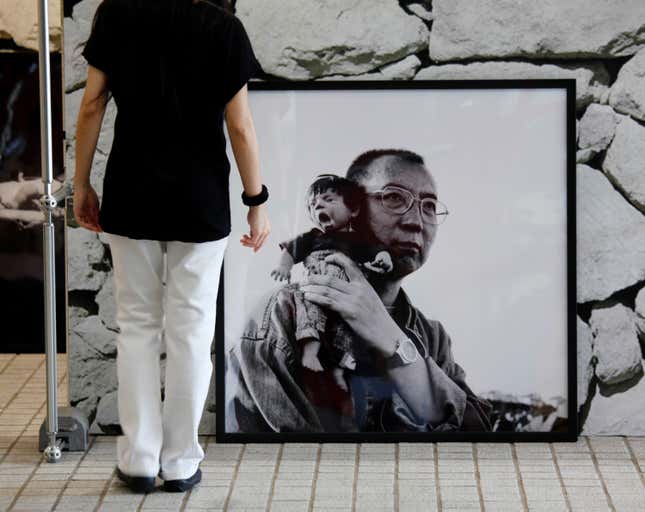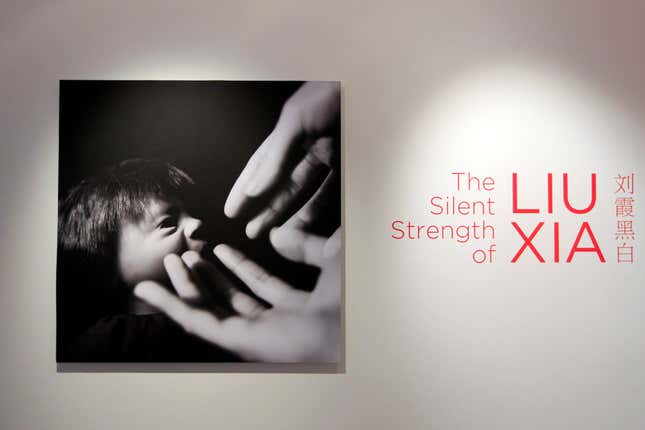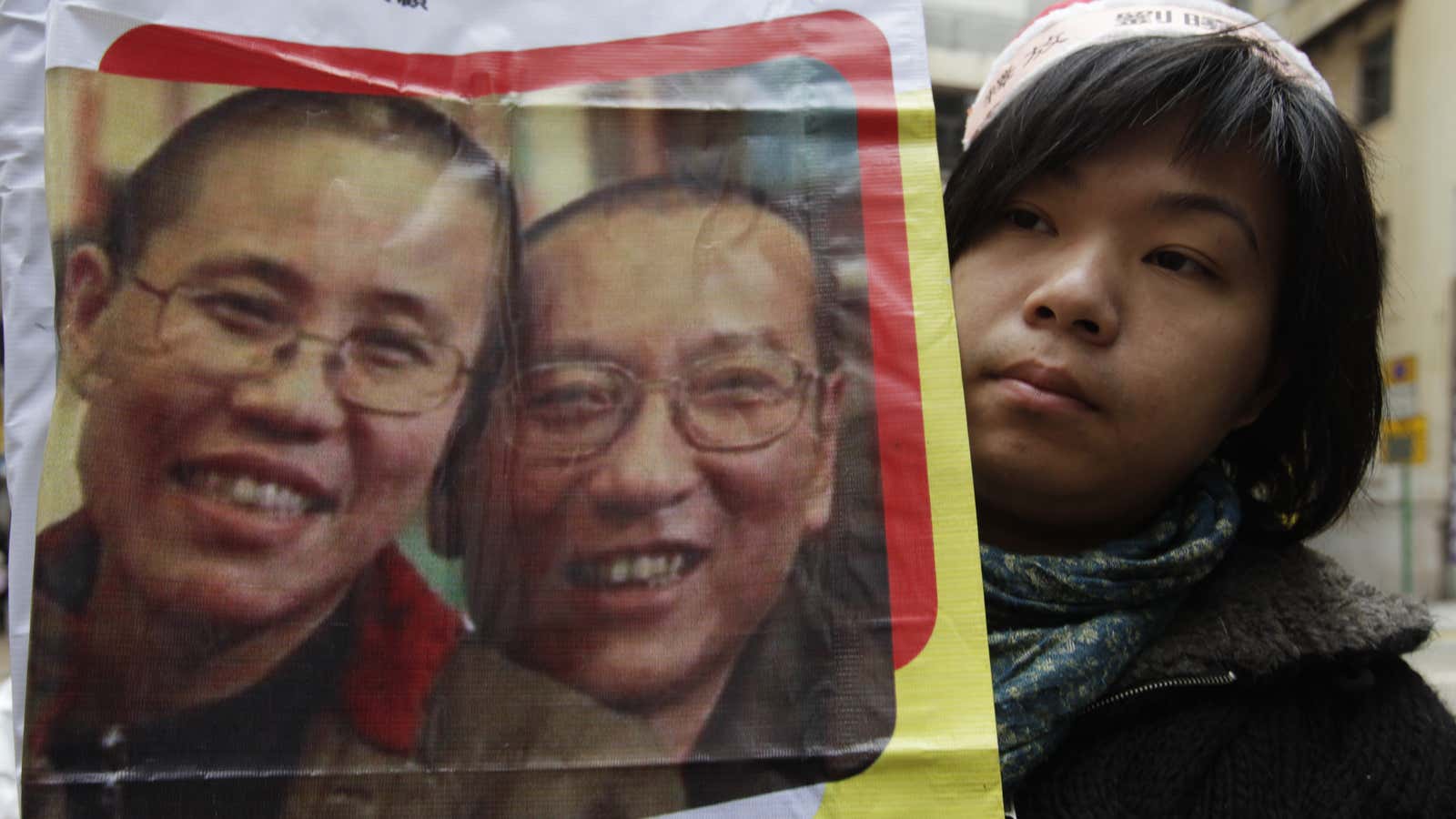During his last days, the late Chinese human rights activist Liu Xiaobo wrote a powerful love letter to his wife of two decades, Liu Xia. That letter, released after his death at the age of 61 on Thursday (July 13), will become the foreword for a collection of her photographs—Accompanying Liu Xiaobo (paywall).
The couple had been kept apart for nine years, seeing each other only on monthly visits, since Liu’s 11-year sentence for subversion of state power in 2009. He was diagnosed with late-stage liver cancer in late June, and went through a three-week treatment in a local hospital in China’s northeastern city of Shenyang under strict security watch before he died from organ failure.
The 56-year-old Xia is a poet, a painter and a photographer. She has been under house arrest—with few visitors and plainclothes police patrolling around her Beijing apartment—since Liu won the Nobel Peace Prize in 2010. The artist wanted to throw a photograph exhibition in June 2013, but was forbidden by the Beijing Public Security Bureau, reported the Guardian in 2014, even though Xia has never been accused of any crime.


During Liu’s last days, he regretted not being able to hold an exhibition for Liu Xia, according to a the letter (link in Chinese), which was obtained by the Hong Kong-based Chinese media outlet the Initium from a friend of Xia (the person described in the letter as “G”). In the letter, Liu calls his wife “Xiami,”or “little shrimp.” (Xia is a homonym with 虾, meaning “shrimp.”) The letter was handwritten on July 5, when Liu’s condition had worsened— a build-up of fluid in the abdominal cavity was seen (link in Chinese), according to the hospital’s statement.
Here is the full script of the letter, translated by Quartz:
Perhaps my praise is a poison not easily forgiven:
Under a dim lamp, you gave me my first lousy computer, maybe a Pentium 586.
That unremarkable room left us crowded in loving gazes.
You have surely read the poem I wrote describing Little shrimp’s* (my wife’s) unreasonableness: she was cooking congee for me, and requested that I write the most desperate hymn the world has ever seen, within six minutes.
The dim lamp, the shabby room, the tea table that had shed its skin, and little shrimp’s impossible demand. These things came together just like the stars and the stones which, amazingly, found that they were a perfect match.
Since then, the praise of hymns has been my calling, like a polar bear’s to hibernation among the vast white of heavy snow.
One bird after another has passed through my field of view—once they latch on to a person’s taste, that taste can be seen across a lifetime. Little shrimp’s poems are a convergence of cold and dark, just like the black and white of her photography. A frantic side next to a calmness that confronts suffering. Desperate children, chests open wide, facing disappating smoke. A fool draped in black: Perhaps inspired by the widow who witnessed the resurrection of Jesus, or by the witch from Macbeth? No, it is neither. It is just a lone twig in the unique wilderness of Little Shrimp’s creativity; a white lily covered with dust on the gloomy horizon, dedicated to the spirits of the dead.
Tragically, realizing her first painting led to the realization that Little shrimp’s collection will never be completed. What I regret most to this day is that I still have not been able to hold an exhibition of her work: “Poetry, painting, and photography—the entanglement of black and white.”
Love is sharp as ice, as distant as the dark. Maybe my crude praise is blasphemy to these poems, paintings, and photographs. Please forgive me, G.
G: Only after a few days’ delay did I have the energy to complete your assignment.
2017.7.5
*Translator’s note: Liu Xia’s given name 霞 is a homonym with 虾, meaning “shrimp”
Liu’s body was cremated and his ashes taken out of the sea on Saturday (July 16).
